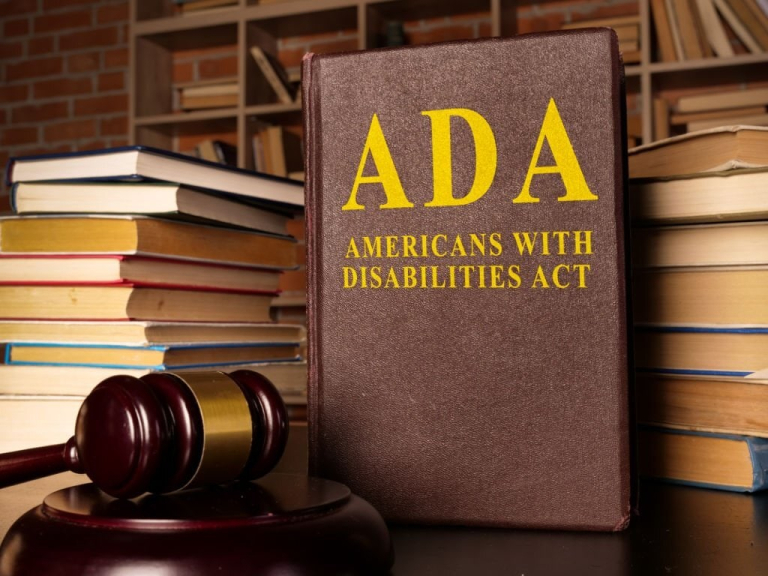When you think of accessibility, do you think about pedestrians with separate pathways, washroom stalls, and more? Accessibility is for all and everywhere, isn’t it? Hence, accessibility is not limited to the physical world but is also necessary in the evolving digital world.
We are all well aware of the fact that the internet has not just become the key element for doing business but the very backbone of global commerce. Right? Isn’t accessibility in digital space as important just like in the physical world? Here ADA for websites comes in the role.
With some rules and ethics, this law has created immense importance for your website’s visibility and easy accessibility for all. Let us dig rock bottom!
What do you understand about ADA For Websites?
ADA – American Disabilities Act, the law that prohibits discrimination against the disabled in several areas, including employment, public accommodation, communication, transportation, digital platforms, and access to government services.
ADA for websites refers to the compliance of accessibility for the disabled from electronic devices and technologies, such as your websites. ADA regulations mandate that specific establishments must provide necessary arrangements for individuals with disabilities. These guidelines also stipulate that online content should be easily accessible to all individuals, including those who are visually impaired, hearing impaired, or rely on screen readers, voice commands, or other assistive technologies to navigate the internet.
There are certain standards to maintain for ADA compliance made by the respective authorities. They monitor all businesses to comply with the standards required for accessible design and web content. If you are offering goods and services in the United States, your business is applicable for compliance. There are norms and regulations for the non-compliance of the standards also. Specified entities found violating the laws can be penalized as per the laws.
Do I Need ADA For My Website?
Whether your business is brand new or an old entity, if you are dealing with goods and services, you must comply with ADA standards. It improves your website’s visibility and easy accessibility, which increases your audience’s reach to your business. However, ADA compliance is mandatory for websites that receive federal funding and some others described under the act.
Title I: Title I of the ADA covers any business with at least 15 full-time employees operating for 20 or more weeks yearly.
Title III: Under Title III of the ADA, businesses that fall under the “public accommodation” category, such as hotels, banks, and public transportation, must also comply. The entirety of the law applies, from physical considerations to digital accommodations.
If your business falls under Title I and Title III of the ADA, then your business website needs to be maintained under ADA standards. If, in any case, you do not believe you are compliant, consult with a disability lawyer to explore your options.
How do I create a website with ADA?
An easy to access website for visually impaired, deaf, and hard-to-hear people or those who navigate with voice, including those who are not immediately obvious. This is the primary motive of ADA for websites. Federal companies need to follow certain requirements. However, there are no such statutes regarding the compliance of ADA for any kind of business.
If you don’t have a precise definition of ADA compliance for your website, there are still steps you can take to ensure you’re heading in the right direction. By implementing various measures, you can make progress toward ADA compliance and show that your business is making genuine efforts to accommodate individuals with disabilities.
Here are some guidelines you can adapt to your website to improve accessibility:
- Create alt tags for all videos, images, and audio files: As we know, alt tags describe the object of that particular content on the website. Alt tags allow users with disabilities to read or hear alternative descriptions of the content they might not be able to view.
- Create text transcripts for video and audio content: Audio and video content can be difficult to access or inaccessible to individuals with hearing disabilities. Text transcription will help them to understand the content and work as an alternative also.
- Site’s language in the header code: Ensuring clear language identification on a website greatly benefits individuals who rely on text readers to access the content. Text readers possess the ability to recognize language codes, enabling them to adapt their functionality accordingly.
- An automatic suggestion in case of input errors: Individuals with disability use the website differently; hence there are chances that they can encounter some input errors. In this case, your site must automatically generate recommendations on how they can navigate the required content.
- A simple, consistent, and organized layout: Menus, buttons, and links should be portrayed in a way so that people with disabilities can easily navigate the content throughout the site. In short, the design of the site is simple and sorted so that anybody can access it easily.
Perfectly accessible content and design provide easy access to the disabled. Your website’s ADA compliance leads your business to the next level. But before you work on ADA accessibility, you must know what your site needs and what changes must be made. ADA for Web offers a free checklist for you to check and amend.
How important is ADA compliance for websites?
If your business is coming under Title I and Title III, it’s mandatory for you to follow ADA compliance. But if you are not sure, is your website ADA compliant, or is it worth looking into it? Here are some advantages of ADA accessibility that might convince you to look forward and make amendments to your website accordingly.
- Builds positive reputation and goodwill within the community: Businesses and organizations build their goodwill based on their reputations within their local and professional communities. Compliance with ADA for websites will let your target audience know how valuable they are to your business. At the same time, increasing the number of target customers by improving your website’s visibility and accessibility.
- Expand your business’s range to a significant population: If your website is not ADA-compliant, you are already missing out on a large audience. On average, there are 50 million people with disabilities in the U.S. Showing a welcoming face to the disabled will open a large demographic area for your business to expand. Unobstructed access for everyone can quickly increase the public visibility and popularity of any business.
- Avoid legal action: Businesses that do not create their website accessible for all, including individuals with disabilities, could be exposed to potential lawsuits. Ensuring that everyone is welcome to buy, work, or receive services with ADA-accessible entryways will help to eliminate this hazard. Get the necessary changes on your business website and avoid legal action of being found non-compliant with the ADA.
- Provides tax incentive: When small firms spend money on ADA-related access-related expenses, the federal government offers them a tax credit. For more details, please refer to the fact sheet on ADA tax incentives.
- It is the right thing to do: Digital world has become the base of commercial trade and transactions. Hence providing access to individuals with disabilities is the right thing to do. An ethical step to take and move forward toward the improvement of the website while providing accessibility to all.
What can ADA For Web do for your website?
We believe ADA for websites serves more than legal purposes. It expands your target audience area and showcases your brand among a new significant group of people. By striving to ensure satisfactory accessibility for individuals with disabilities, businesses can proactively stay ahead of regulatory requirements and create a website that complies with accessibility standards, reducing the risk of lawsuits. Additionally, developing an accessible website can result in increased sales and improved search engine rankings.
ADA For Web audits your website and suggests you make required amendments. If in any case of confusion, you can always consult with our expert disability attorney.
Contact us now!





